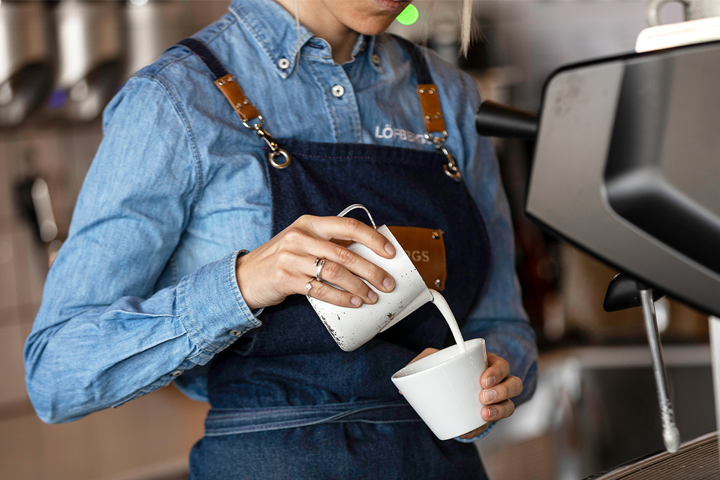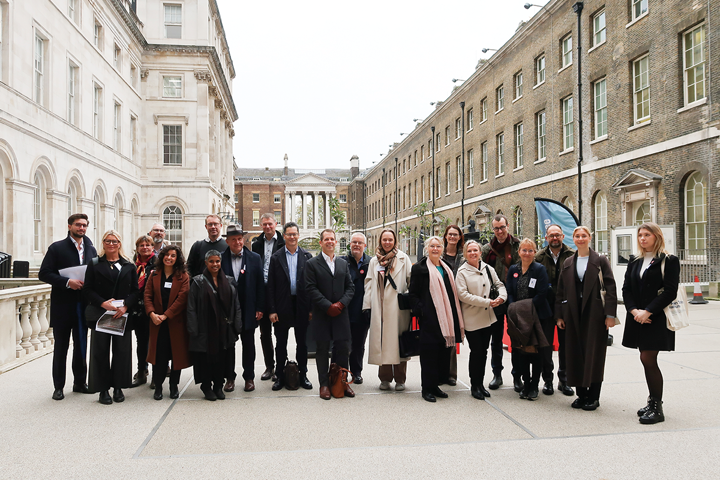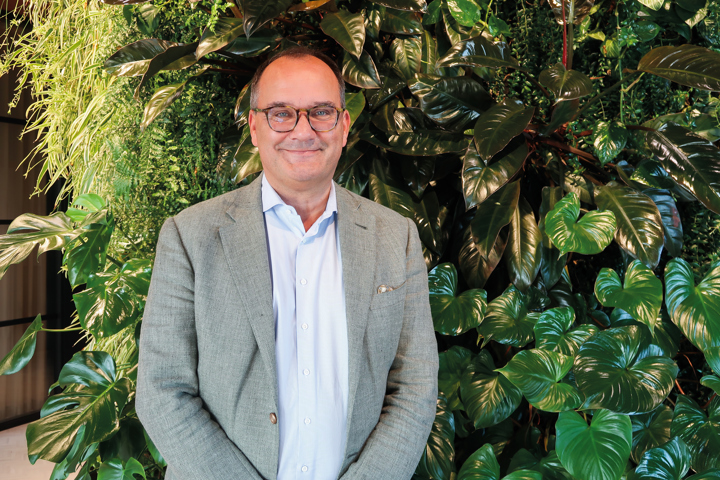
Circularity: The new norm in workspace furniture
19 January 2024
In today’s business world, where sustainability and flexibility are paramount, SCC member NORNORM, exemplifies innovation in workspace solutions with its unique subscription-based office furniture service. “We’re driving change by integrating the circular economy into the business sphere,” Filip Johannesson, Head of Growth, says. Fresh from their UK launch, NORNORM is steadily advancing towards its goal: making a global impact with its circular approach.
Filip observes, “Businesses invest heavily in office setup, only to realize later that it doesn’t meet evolving needs.” This common scenario underscores a larger issue: annually, millions of tons of furniture are discarded due to changing workplace requirements and shifting design trends. NORNORM’s circular, subscription-based model aims to significantly reduce the carbon footprint and waste inherent in traditional furniture production while responding to the growing demand for workplace sustainability and adaptability.
“In the ever-evolving business world, adaptability is more than a convenience – it’s a necessity,” Filip states. “Our subscription model is designed for today’s dynamic climate, enabling companies to efficiently modify their office spaces in response to changing operational needs, while simultaneously reducing their environmental footprint.”
He continues: “Flexibility in our model goes beyond mere physical rearrangement. By choosing to downsize or redistribute their office spaces, companies are not only optimising their operational efficiency but are also actively contributing to environmental conservation. Our approach offers a practical, eco-friendly solution to the traditionally costly and inflexible practice of buying and discarding office furniture.”
Filip further highlights the regenerative aspect of their business model. “Our commitment transcends traditional sustainability. We’re not just aiming to lessen environmental harm; we’re actively working to regenerate resources and establish a sustainable cycle of usage and reuse. This approach allows businesses to reduce their environmental impact by up to 70%, proving that ecological responsibility and economic feasibility can coexist harmoniously. It’s not just about making better choices for the environment; it’s about creating a positive, lasting impact.”
Global ambitions rooted in Scandinavia
Originating in Sweden and Denmark, NORNORM began as an IKEA project before evolving into an independent entity, backed by both IKEA and Verdane, a growth investor. Currently active in eleven European nations, the company has set its sights on a broader, global expansion.
“This company was envisioned for global impact. To truly benefit the environment, our efforts must be worldwide,” says Filip.
Choosing London and the UK for expansion was an obvious decision for NORNORM. “London’s vast office market and progressive real estate sector align perfectly with our sustainability ethos,” he notes.
A timeless design philosophy
NORNORM’s approach to design is deeply rooted in sustainability and longevity. “Our design philosophy revolves around versatility and durability. We select furniture that can withstand the test of time, both in terms of style and functionality,” Filip explains. This approach is reflected in their commitment to circular design principles, ensuring that each piece is designed for disassembly and durability, made from sustainable materials, and adaptable to various settings.
By focusing on timeless design, NORNORM avoids the pitfalls of ‘fast-furniture’ – a trend that leads to significant waste and environmental degradation. Filip likens their furniture to iconic fashion staples: “Think of our pieces like a classic white shirt or a versatile black dress. They’re designed to be relevant and functional, decade after decade, echoing the ethos of lasting value and sustainable elegance.”
Fostering a circular global community
Filip believes that the need for adaptable and environmentally responsible workspaces is a permanent trend, necessitating ongoing innovation in office design. “The challenge is to go beyond sustainability, towards a regenerative business model. We’re leading by example, showing that it’s possible to be both circular and economically viable,” he asserts.
NORNORM’s mission is to redefine the intersection of environmental integrity and economic viability, nurturing a global circular economy. Filip succinctly captures this ethos: “Our journey is not just about minimising harm; it’s about actively doing more good. We’re shifting from the mindset of ‘doing less bad’ to one where ‘more good’ is at the forefront of our business models.”



Join our mailing list
and keep up-to-date with the Chamber's news and events.
Read our Privacy Policy here